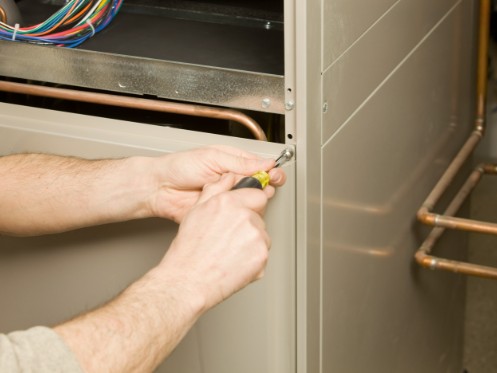Selecting the right furnace for your home is not a decision to be taken lightly. Your choice will determine your comfort level, your energy expenses, and the condition of your surroundings. Therefore, before you make your final decision, ensure that you have fully researched the various heating systems and choose the best for your home. Whether replacing an old furnace or installing a new one, the following will guide you through selecting the right furnace for your home.
1. Understand Your Heating Needs
This is the first and most crucial step in choosing the right furnace for your home. The heat needs of a house differ based on factors such as its size, layout, insulation, and the climate conditions specific to its location. Here’s what you need to consider:
Home Size and Layout
The size and layout of your home are vital factors when selecting a furnace. A larger home with multiple rooms will require a furnace with more heating capacity, while a smaller space may only need a smaller unit.
To find the right size, consult with HVAC professionals, and they will be sure to calculate the total square footage of your home, considering factors like ceiling height, the number of windows, and the level of insulation.
Climate
The climate in your region is another crucial factor. If you live in a region with extremely cold winters, you’ll need a more robust and efficient furnace to keep your home warm. Understanding your local climate will help you choose a furnace that can handle the demands of the coldest months.
2. Choose the Right Fuel Source
Various fuel sources can be used to power furnaces. The one that you choose will greatly affect how well your heating system will operate and how much it will cost to run it. Here are the most common options:
Natural Gas
Natural gas is a popular choice for furnaces due to its affordability and efficiency. If your home has access to a natural gas supply, it’s worth considering a gas furnace.
Propane
A propane furnace generates hotter air than an electric furnace, runs very clean and efficiently, and can provide all the advantages of gas heat when you don’t have access to a natural gas pipeline.
Electric
Electric furnaces are suitable for homes without access to gas. They are easy to install and maintain but tend to be less energy-efficient than gas or propane furnaces. This can lead to higher operating costs.
Oil
Oil furnaces are a choice for some homeowners, especially in regions where other fuel sources are less accessible. While they can be efficient, oil furnaces require regular maintenance and can have higher running costs.
3. Consider Energy Efficiency
Energy efficiency is a critical aspect when choosing a furnace. Opting for a furnace that utilizes minimal energy not only helps to protect the environment but also leads to decreased utility costs for you. Look for the Annual Fuel Utilization Efficiency (AFUE) rating, which measures the efficiency of a furnace.
High AFUE Rating
A furnace with a high AFUE rating can convert a significant portion of its fuel into heat. Consider investing in a furnace with an AFUE rating of 90% or higher for optimal energy efficiency.
Variable-Speed Blowers
Furnaces with variable-speed blowers can adjust their fan speed to meet the heating demand more efficiently. This feature can help maintain consistent temperatures and reduce energy consumption.
4. Budget Consideration
Factor in the initial and long-term operational costs when choosing a furnace. A furnace that initially costs a lot of money might help you save more in the long run because it is more efficient. On the other hand, a cheaper furnace may use more energy, which will cost you more money over time. Consider your financial resources and analyze the potential long-term costs and benefits before making a wise decision.
It is crucial to understand the pros and cons of various furnace types, considering their suitability for your heating needs, before making a decision. At Family Heating and Air, Inc, we offer cooling, heating, and maintenance services to all residents in Sebastian, FL, and the surrounding areas. If you have more questions or would like help choosing a heating system that’s right for your home, we can offer guidance. Contact us at Family Heating and Air, Inc to schedule your appointment today.


